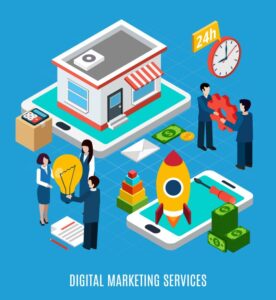
In the rapidly evolving landscape of digital marketing, having access to a high-quality Education Industry Email List is essential for businesses, service providers, and marketers looking to connect with educational institutions and decision-makers. Whether you’re offering e-learning solutions, educational software, school supplies, or consultancy services, an email list targeting the education sector can be the key to reaching the right audience with precision.
In this article, we’ll explore the significance, benefits, sources, and best practices for using an Education Industry Email List, providing you with everything you need to launch effective campaigns in the academic sector.
What Is an Education Industry Email List?
An Education Industry Email List is a curated database of email addresses and contact details of professionals, institutions, and organizations in the education sector. This can include:
- School administrators
- University professors
- College deans
- Principals
- Superintendents
- Education consultants
- E-learning platform managers
- IT managers in schools or universities
- Procurement departments of educational institutions
These lists are typically segmented by institution type (K-12 schools, colleges, universities, online schools, etc.), job title, location, and other demographics to help marketers tailor their outreach.
Why You Need an Education Industry Email List
1. Direct Access to Decision-Makers
Instead of sending generic marketing messages, an education email list allows you to reach key decision-makers who are responsible for purchasing and partnerships.
2. Boost ROI with Targeted Campaigns
Email marketing remains one of the highest ROI channels. A segmented and verified education email list ensures your campaigns are well-targeted, improving open rates, click-through rates, and conversions.
3. Save Time and Resources
Manually collecting contact details of thousands of educational professionals can take months. Purchasing or renting a ready-made, verified list saves time and lets your team focus on strategy and content.
4. Expand Market Reach
Whether you’re a local vendor or a global provider, education email lists allow you to connect with institutions across regions and continents, helping you scale your marketing reach.
Key Features of a High-Quality Education Email List
Not all email lists are created equal. Here’s what to look for in a reliable Education Industry Email List:
- Accurate and Updated Data: The list should be verified regularly to eliminate outdated or incorrect contacts.
- Comprehensive Coverage: Includes a wide range of educational institutions – from K-12 to higher education and online learning platforms.
- Segmentation Options: Ability to filter by role, institution type, location, size, and more.
- Compliance: GDPR, CAN-SPAM, and other data protection laws must be followed.
- Deliverability Guarantee: Reputable list providers offer deliverability rates of 90% or more.
Who Can Benefit from an Education Email List?
An Education Industry Email List is valuable for a range of businesses and professionals, including:
- EdTech Companies: Marketing educational software, tools, and platforms.
- Publishing Houses: Selling academic books, journals, and resources.
- Training Providers: Promoting online courses, certifications, and seminars.
- Stationery and Supplies Vendors: Offering educational materials and classroom supplies.
- Recruitment Agencies: Targeting job openings in education.
- Event Organizers: Promoting conferences, webinars, and expos.
Where to Get a Reliable Education Industry Email List
1. Reputable Data Providers
Trusted B2B data vendors like InfoUSA, EducationDataLists, ZoomInfo, and SaleLeads.io offer industry-specific email lists that are regularly updated and verified.
2. Industry Associations and Conferences
Education associations often have membership directories or lead capture options during events. Partnering with such organizations can help you collect high-value contacts.
3. Internal CRM & Website Signups
Encourage educational professionals to sign up for newsletters, whitepapers, or demos on your website. These organically generated leads tend to be highly engaged.
4. LinkedIn and Professional Networks
LinkedIn Sales Navigator is another great way to build targeted lists manually using filters like job title, company size, and industry.
How to Use an Education Email List Effectively
1. Personalize Your Emails
Avoid generic messages. Use the recipient’s name, mention their institution, and address their specific needs. Personalized emails can increase engagement dramatically.
2. Provide Value
Educational professionals are busy. Make sure your email offers something valuable, such as free resources, case studies, special offers, or demo invitations.
3. A/B Testing
Experiment with subject lines, content structure, and CTAs (Calls-to-Action). A/B testing helps you determine what resonates best with your audience.
4. Comply with Regulations
Ensure your email campaigns comply with privacy laws like GDPR and CAN-SPAM. Include unsubscribe links and honor opt-out requests promptly.
5. Measure and Optimize
Track open rates, click rates, and conversions. Use this data to refine future campaigns and increase performance over time.
Common Mistakes to Avoid
- Buying Low-Quality Lists: Cheap lists often contain outdated or irrelevant contacts, leading to high bounce rates and spam flags.
- Overloading Emails with Sales Pitches: Focus on relationship-building and value rather than hard selling.
- Neglecting Mobile Optimization: Many users check emails on mobile devices. Make sure your emails are responsive.
- Ignoring Follow-Ups: Sometimes, one email isn’t enough. Set up a series of follow-ups with different angles and messages.
Future Trends in Education Email Marketing
1. AI and Automation
Automation tools are being used to segment lists, schedule emails, and personalize messages at scale. AI can help predict user behavior and optimize campaign performance.
2. Interactive Emails
Emails with embedded videos, polls, or clickable elements are becoming popular for engagement in the education sector.
3. Integrated CRM and Email Tools
More organizations are integrating email platforms with CRM systems to ensure seamless tracking and follow-up.
4. Focus on Content-Driven Marketing
Educational institutions value insights and data. Sharing whitepapers, case studies, and webinars can build credibility and trust.
Conclusion
An Education Industry Email List is a powerful resource for businesses aiming to connect with educational institutions and professionals. Whether you’re offering a groundbreaking EdTech solution, promoting a new academic publication, or hosting an educational event, having a verified and well-segmented email list can significantly enhance your outreach and ROI.
When sourced from reputable providers and used strategically, an education email list can help you build relationships, generate leads, and grow your business in the academic market. Just remember to maintain compliance, deliver value, and constantly refine your approach for the best results.





